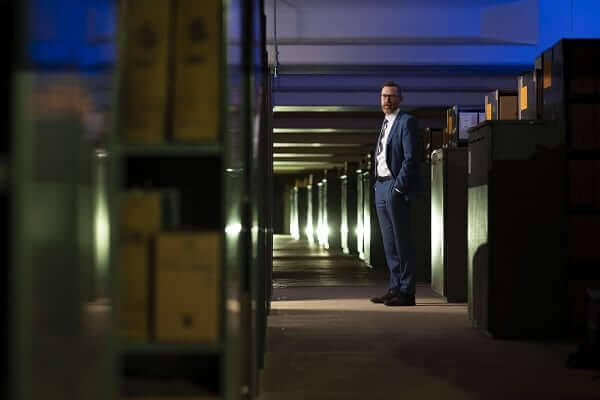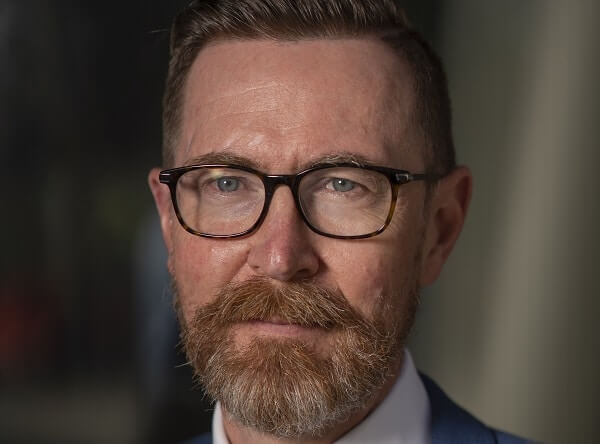Observers of the trends in the India-Australia relationship will be well acquainted with the work of international relations expert Prof. Rory Medcalf. His scholarly analyses of the association between the two countries – starting from India’s entry into the world’s nuclear club in the late 1990s to a fresh momentum now in a post-pandemic world – have not only enlightened, they have pushed policy boundaries as well.
As a former journalist, diplomat, and intelligence analyst, Prof. Medcalf’s work has involved much more than India of course, covering Ireland, China, Japan, the Indo Pacific, and nuclear non-proliferation and disarmament. (It was the last of these that introduced him to India in a meaningful way.)
“I’ve always been interested in the world,” Prof. Medcalf told Indian Link. “I studied International Relations at university. I became interested in foreign policy when the peace process was on in Ireland in the early 1990s; it led to a fascination with conflict and conflict resolution. After I finished my studies, I joined the Australian Foreign Service.”
His original interest in India came in 1998 with the Nuclear Non-Proliferation Treaty, while he worked in the Disarmament section of the Department of Foreign Affairs and Trade (DFAT). “India was seen then as a non-proliferation problem. I was one of the players to shift that view, to see India as a non-proliferation solution.”
To have made a significant impact to the transformation of relations between India and Australia, Prof. Medcalf regards as a career highlight.
“When I landed in India in 2000 as First Secretary at the Australian High Commission, it was a low point in the relationship. When I left in 2003, there was a significant bridging of relations, with a reset in defence, and the first ever strategic relationship conference I helped arrange in 2001 after which both countries (accepted each other) as neutral pillars of stability. I saw that transformation take place, and know that I played a role.”
By this time, Prof. Medcalf was seen as an expert in nuclear arms control, having contributed to two landmark reports following the 1996 Canberra Commission and the 1999 Tokyo Forum, with a third one to come in 2009, for the International Commission on Nuclear Non-proliferation and Disarmament. He regards this as a second career highlight.
Back in Australia, Prof. Medcalf took on a variety of roles in academia and with independent think tanks such as Lowy Institute. “I brought my personal understanding of India to everything I did, and by 2007 I had helped Australia understand India’s role in a shifting world.”

His work began to play a significant role in formal diplomacy.
What is his assessment of the state of the relationship today?
“The relationship is at its strongest point ever. The challenge though, is to manage expectations. The relationship will continue to flourish, but there could be bumps and interruptions on which they’ll need to work harder. For instance they’ll need to work harder to see eye to eye on the Ukraine issue. But then on the Chinese pressures in the Indo-Pacific, they are on the same page.”
In terms of developing human capital, the relationship is at the beginning of a high-impact time, Prof. Medcalf observed. “But we’ll have to be realistic. Both nations are democracies; both will have their own strategic imperatives and pursuits.”
He wrote in mid-2020 after a virtual conference between Prime Ministers Morrison and Modi, “Australia and other democracies will need to take care in defining their India relations primarily through convergent interests, mindful of the danger to India’s own democratic strengths from elements within broader Hindu nationalism.”
As an academic, what are his views on the topic of Indian studies in Australian universities?
“I think it’s absolutely vital to develop an enduring (education) relationship; it will be of strategic benefit to both. We’ve come a long way in that since the late 2000s. Bring the best and brightest students here, future leaders not just in business and scientific research, but also in policy and international relations, and those that can raise genuine interest in people-to-people relations.”
He added, “Australia must elevate its game in ensuring that the Indian student experience here is a positive one.”
In terms of studying India, Prof. Medcalf’s comment was that there is room for improvement. “There have been pockets of excellence, but not with coherent continued progress. I’m hopeful that the recently announced Centre for Australia-India Relations will make a profound difference in that regard.”
Prof. Medcalf is currently Professor and Head of the National Security College at the Australian National University. “It is a privilege to lead the institute, and I consider this another career highlight. We have helped lift Australian national security capabilities considerably, and have trained thousands of government officials.”
Prof. Rory Medcalf lists his latest book, Contest for the Indo-Pacific as yet another peak point in his career in foreign policy. “Marise Payne and Penny Wong, the former and current Foreign Ministers, launched the book jointly in 2020, because the region demands bipartisan support. The role that I played here in developing the Indo-Pacific concept is most satisfying.”
READ ALSO: Dr. Marlene Kanga, AO: Queen’s Birthday Honours 2022





